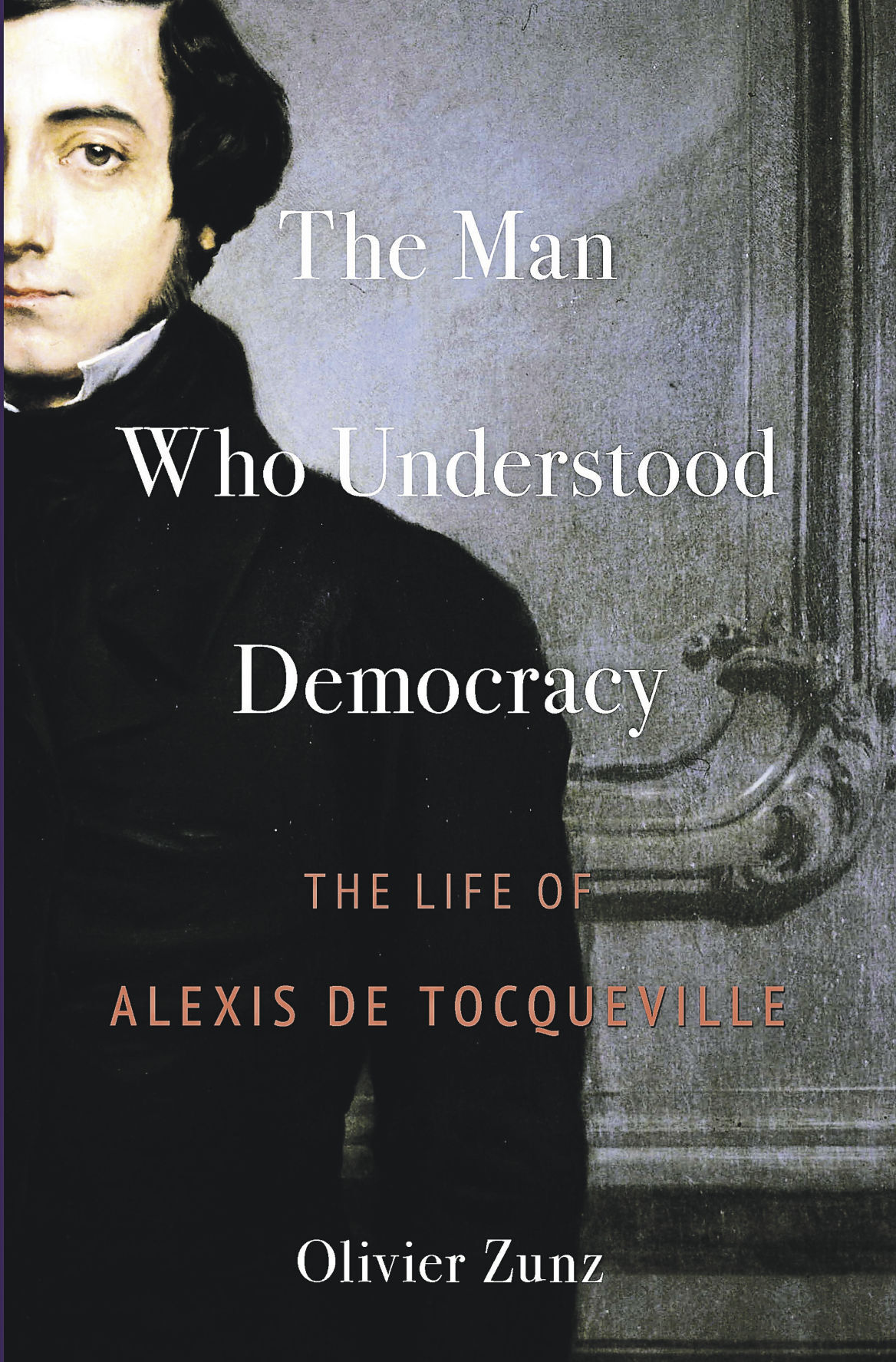“The Man Who Understood Democracy: The Life of Alexis De Tocqueville” by Olivier Zunz; Princeton University Press (456 pages, $35)
Commissioned by the French government to study prisons in the United States, Alexis De Tocqueville, a young aristocrat, allied with neither monarchists nor radicals, returned home in 1832 determined to advance an idea “that obsesses my mind: The irresistible march of democracy.”
A “world totally new demands a new political science,” he declared. He supplied it in “Democracy in America.”
In “The Man Who Understood Democracy,” Olivier Zunz, an emeritus professor of history at the University of Virginia and editor, among other books, of “The Tocqueville Reader,” provides an informative biography of De Tocqueville, whose understanding of liberty and equality has remained immensely influential for almost 200 years.
Zunz explains what Tocqueville learned — and what he failed to notice — during his travels throughout the United States. In America, Tocqueville observed, wealth was distributed much more equally; respect for the law was pervasive. A Philadelphia free trade convention gave him the idea for his theory of voluntary associations. With so many citizens able to purchase land, Tocqueville wrote, “how can one even imagine a revolution.”
That said, on a visit to a frontier town inhabited by French Canadians and Indians, he became conscious of the ethnic and racial fault lines in American society.
Tocqueville did not know that the Erie Canal was funded by government; he ignored industrialization and the cotton mills in Lowell, Mass. He seemed unaware of the revival of evangelical Protestantism (which he condemned as a denatured form of faith) in the Second Great Awakening. He failed to grasp the significance of the formation of a two-party system.
Zunz’s analysis of “Democracy in America” hews closely to conventional wisdom. Tocqueville’s positions, he notes, were often inconsistent with his endorsement of democracy: Opposition to universal suffrage; concerns about the “tyranny of the majority” and individualists who ignore the needs of others while expressing empathy for humanity; encouragement of entrepreneurship and skepticism about materialism.
But, Zunz writes, he has come to appreciate the power of Tocqueville’s conclusions about liberty, equality and democracy, “because he persists in making them in the face of misgivings.”
Zunz also provides a splendid account of Tocqueville’s career as a practical politician in France, during which he “sought to be at once a patriot, a colonialist and a democrat, even though these identities failed to cohere.”
A fierce critic of the monarchy, Tocqueville was reluctant to support its demise following the Revolution of 1848. Once “the initial shock wore off,” however, he decided to participate in “the historic republican experiment,” hoping it would ultimately give each individual “the greatest possible share of liberty.”
Bitterly disappointed when Louis Napoleon returned to power, Tocqueville “reconciled himself to the idea that his true vocation was as a thinker.” He lived long enough to write “The Ancient Regime and the French Revolution.”
Tocqueville died in 1859, at age 53, before completing the second volume, but, Zunz concludes, after he had “channeled his anxiety into a creative force and translated his passion for liberty into a deep and demanding appreciation of democracy.”
Glenn C. Altschuler writes for the Star Tribune.


